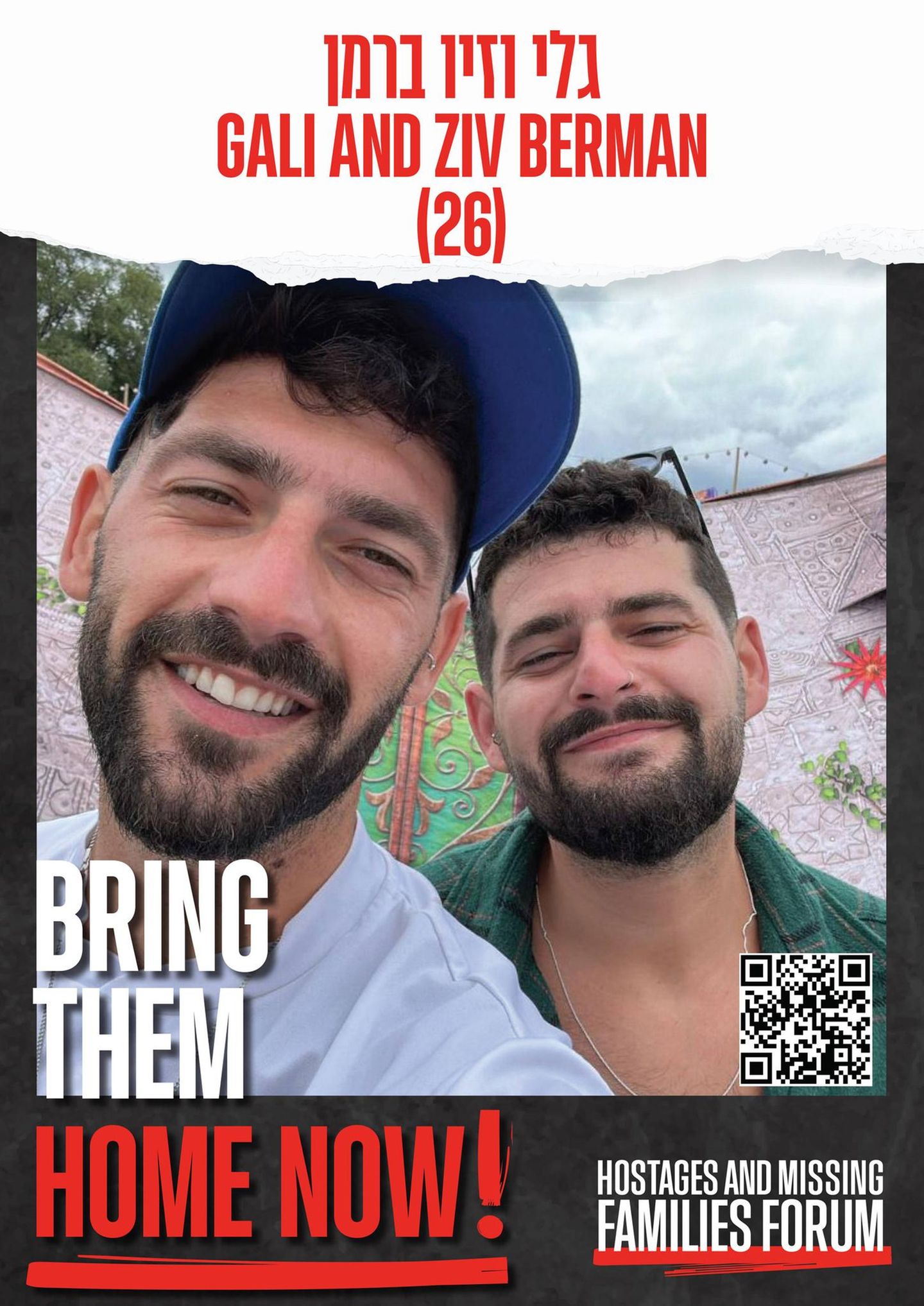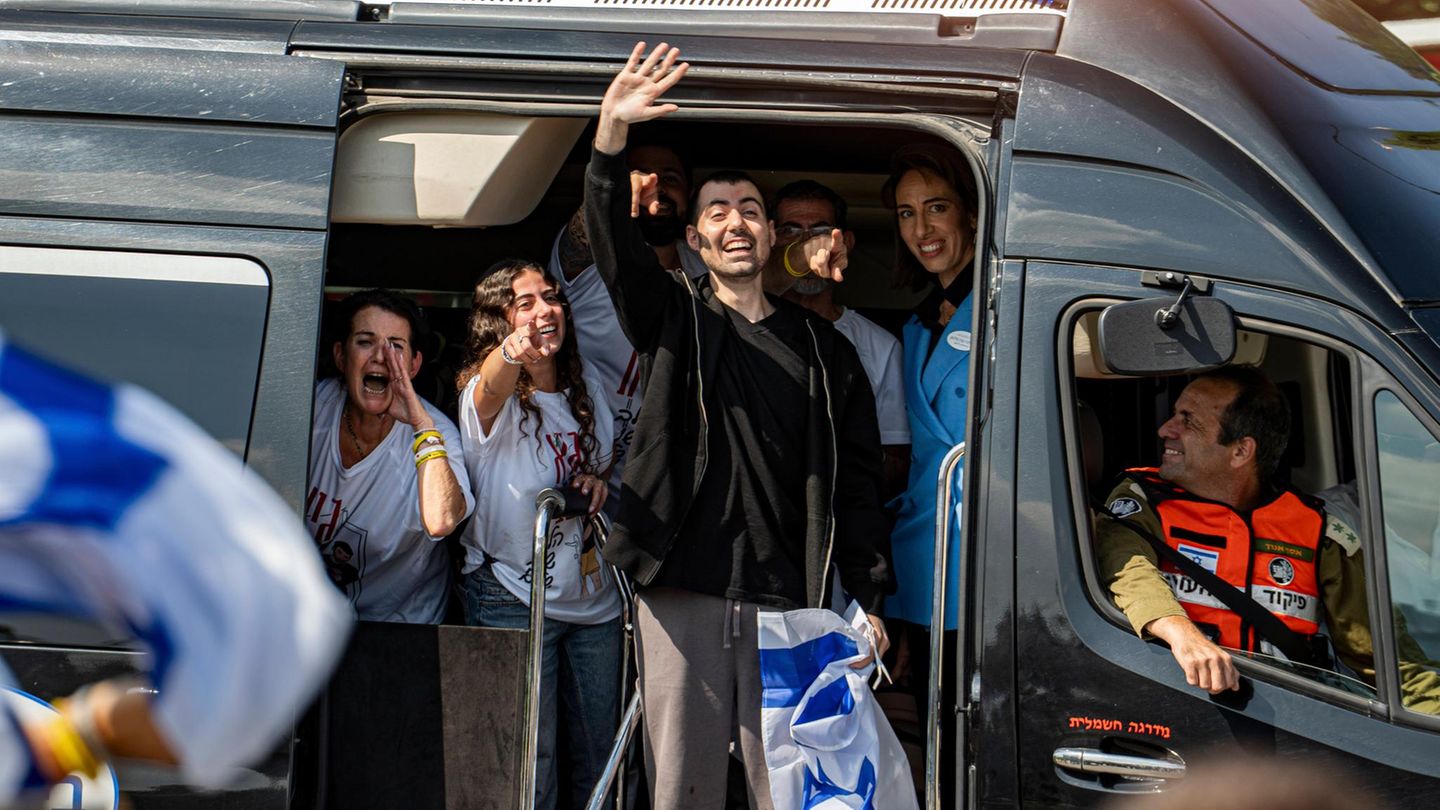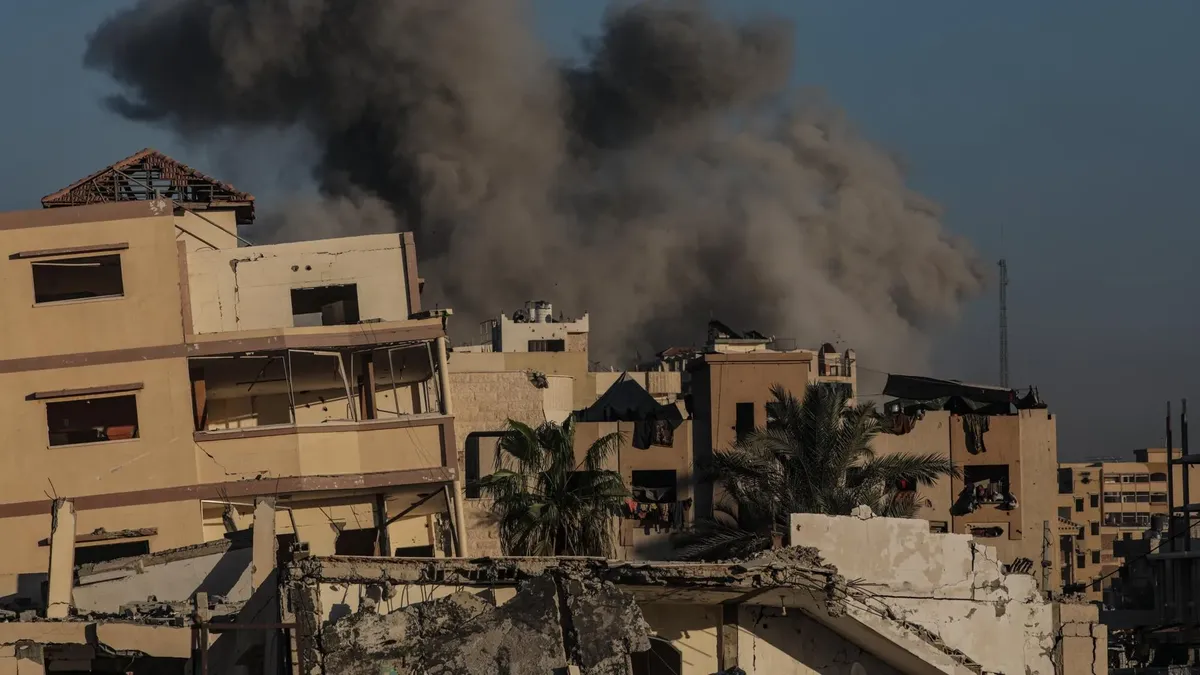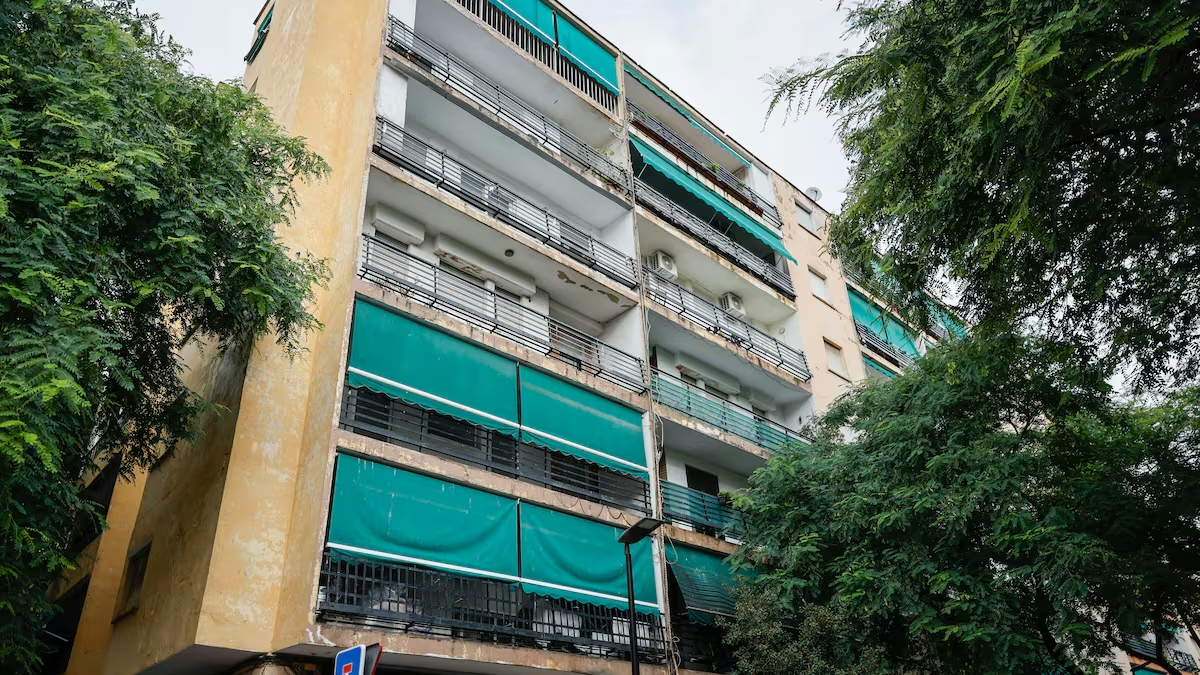738 days of imprisonment
“You can see the traces of captivity on the bodies of the hostages”
Copy the current link
Add to wishlist
They have survived the horror of captivity: 20 Israeli hostages were released by Hamas after two years. Your path to everyday life will not be easy.
“These are the moments that I will remember even when I’m 70 or 80 years old,” Michal Steinman told the BBC. Steinman is a nursing supervisor at Rabin Medical Center in Petah Tikva, Israel. She is one of those who received the Israeli hostages. On Monday, the last 20 survivors were released from the Gaza Strip by Hamas.
“There is no specialty like hostage medicine, we are inventing it,” Steinman told the BBC two days before the handover. Rabin Medical Center is one of three hospitals where the men were taken.
How do you help people get back into life after they have seen and experienced the unimaginable for two years? Who saw family and friends die, starved themselves, were tortured or raped, and lost their homes?
First the journey to Israel, then the rehab
The hostages were handed over to the Red Cross in Gaza on Monday before being taken to the Re’im military base in southern Israel. There they were able to meet their closest relatives and were medically examined. Several helicopters stood ready to immediately fly them for treatment to one of three Israeli hospitals, including Rabin Medical Center, if necessary.
At the hospital, each hostage is cared for by several specialized staff, the hospital said, including physical therapists, speech and occupational therapists, psychologists and nutritionists.
Your premises don’t look like a typical clinic – more like a hotel. Friends and family were able to personalize the rooms beforehand. There is a “Do Not Disturb” sign on the door of every private room, Steinman tells the BBC. The furnishings are cozier, the lighting is softer, the monitors look different. If the patients do not want to stay alone, an additional single bed is available. The closest family members also have their own bedroom in the hallway.
The Israeli government has prepared a welcome package for each person who returns. It contains practical items such as clothing, personal equipment, a laptop or a cell phone. There is also a handwritten message from Prime Minister Benjamin Netanyahu and his wife Sara.
It is a start to rebuilding your own life. The survivors should, at least objectively, lack nothing.
These 20 Israeli hostages who are still alive are free
Gali and Ziv Berman Terrorists kidnapped the two twin brothers, now 28 years old and also German citizens, from an Israeli border town. Both are said to have been held separately © IMAGO/Bring Them Home Now/Imago Images More 
Open caption
Back
Further
Back in Israel, several of the former hostages had to undergo operations. Sometimes they have to learn to speak or eat again. “You have to decide what is urgent and what can wait two days. You have to be humble and flexible without losing sight of medical responsibility,” Steinman told the BBC. This also includes a sense of how much patients can eat and how quickly. During their captivity, some have lost more than half their body weight.
Some symptoms only appear after days, others after weeks. Doctors are therefore also “detectives,” says Steinman. Previously released hostages who were emaciated and tied up or beaten “had things in their blood tests, in their enzymes that we couldn’t understand.” Captivity has effects that the body remembers for a long time. “You see all these tracks.”
“We will not put them under any pressure,” a spokesman for Sheba Hospital told the Guardian. The clinic would take time for the entire series of medical examinations. “They can stay at Sheba Hospital as long as necessary to receive the medical or psychological care they may need in the future.”
Long-term stations have also been available since this year.
The former hostages have to find their way back to life
250 people were kidnapped in the Gaza Strip in the Hamas attack on October 7th. Dozens did not survive. The survivors, who have all been back in Israel since Monday, will continue to need psychological care for a long time – as will the families of the survivors and those who died.
The most important thing is the time factor, says Karina Shwartz to the BBC. She is director of social work at Rabin Medical Center: “We can’t talk about two years in a week. The hostages need space and time. They also need rest. We have to listen. Listen to their story.”
The hostages also unintentionally became celebrities in Israel, something that very few people are likely to be prepared for. Everyone knows their names. For two years now, posters have been commemorated by their faces and have been distributed across the country. “Everyone will want to be friends with them. We tell them: It’s OK to say no. It’s safe to say no,” Shwartz said.
“The process does not end with release – it begins with it,” the Forum for Hostages and Missing Families said in a statement on Monday. The men need “medical care, close supervision and peace – and above all the restoration of their identity as people, not as ‘hostages’”.
Source: Stern
I have been working in the news industry for over 6 years, first as a reporter and now as an editor. I have covered politics extensively, and my work has appeared in major newspapers and online news outlets around the world. In addition to my writing, I also contribute regularly to 24 Hours World.




